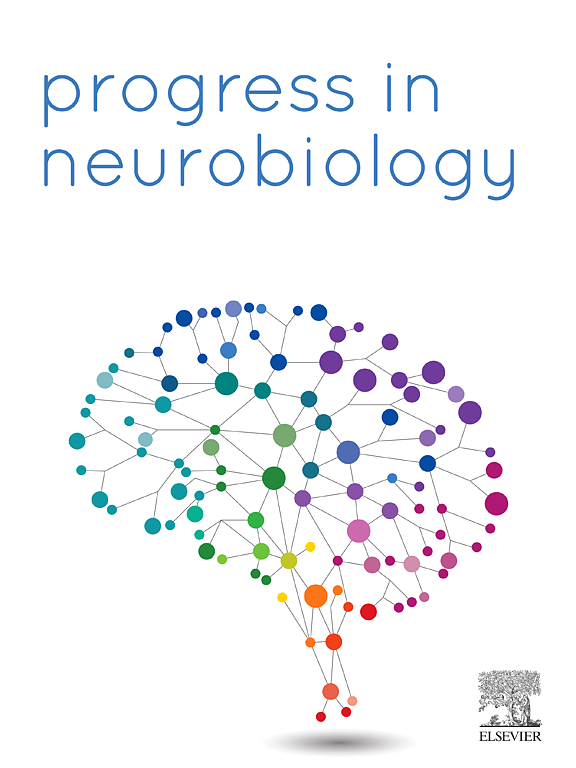神经干细胞与阿尔茨海默病中昼夜节律和表观遗传学的相互作用。
IF 6.1
2区 医学
Q1 NEUROSCIENCES
引用次数: 0
摘要
生物钟作为一个分子计时器,影响着大多数行为和生理过程。许多与神经退行性疾病相关的症状,如睡眠障碍、焦虑和情绪改变,都与生物钟失调有关。昼夜节律系统的失调越来越多地与阿尔茨海默病的发病和进展有关,新出现的证据强调了阿尔茨海默病和昼夜节律紊乱之间的双向关系。关键的一点是,生物钟调节着成人神经发生,这一过程在阿尔茨海默病中受到严重损害。最近的进展表明,动态表观遗传机制-包括DNA和组蛋白修饰以及非编码rna的调节-在昼夜节律和神经发生中起着关键的调节作用。因此,对昼夜节律中断的研究,特别是对神经退行性疾病中生物钟与神经发生协调的研究,也可能加速创新的、基于昼夜节律的治疗方法的创造,从一个新的角度来抵消神经疾病的进展。在这篇综述中,我们探讨了将昼夜节律系统与神经退行性疾病联系起来的潜在表观遗传机制,重点是阿尔茨海默病。本文章由计算机程序翻译,如有差异,请以英文原文为准。
Interplay between circadian rhythms and epigenetics in neural stem cells and Alzheimer’s disease
The circadian clock, as a molecular timekeeper, influences most behavioural and physiological processes. Numerous symptoms associated with neurodegenerative diseases, such as sleep disorders, anxiety, and mood alteration, are linked to circadian clock dysregulation. Dysregulation of the circadian system is increasingly implicated in the onset and progression of Alzheimer's disease, and emerging evidence highlights a bidirectional relationship between Alzheimer’s disease and circadian clock disruption. A crucial point is that the circadian clock regulates adult neurogenesis, a process that is significantly impaired in Alzheimer’s disease. Recent advancements suggest that the dynamic epigenetic mechanisms—including DNA and histone modifications as well as regulation by non-coding RNA—act as a critical regulation for circadian rhythms and neurogenesis. Therefore, research on circadian disruption and, particularly, focus on harmonising the circadian clock with neurogenesis in neurodegenerative diseases may also speed up the creation of innovative, circadian-based treatments to counteract the progress of neurological disorders from a new perspective. In this review, we explore potential epigenetic mechanisms linking the circadian system to neurodegenerative diseases, with a focus on Alzheimer’s Disease.
求助全文
通过发布文献求助,成功后即可免费获取论文全文。
去求助
来源期刊

Progress in Neurobiology
医学-神经科学
CiteScore
12.80
自引率
1.50%
发文量
107
审稿时长
33 days
期刊介绍:
Progress in Neurobiology is an international journal that publishes groundbreaking original research, comprehensive review articles and opinion pieces written by leading researchers. The journal welcomes contributions from the broad field of neuroscience that apply neurophysiological, biochemical, pharmacological, molecular biological, anatomical, computational and behavioral analyses to problems of molecular, cellular, developmental, systems, and clinical neuroscience.
 求助内容:
求助内容: 应助结果提醒方式:
应助结果提醒方式:


